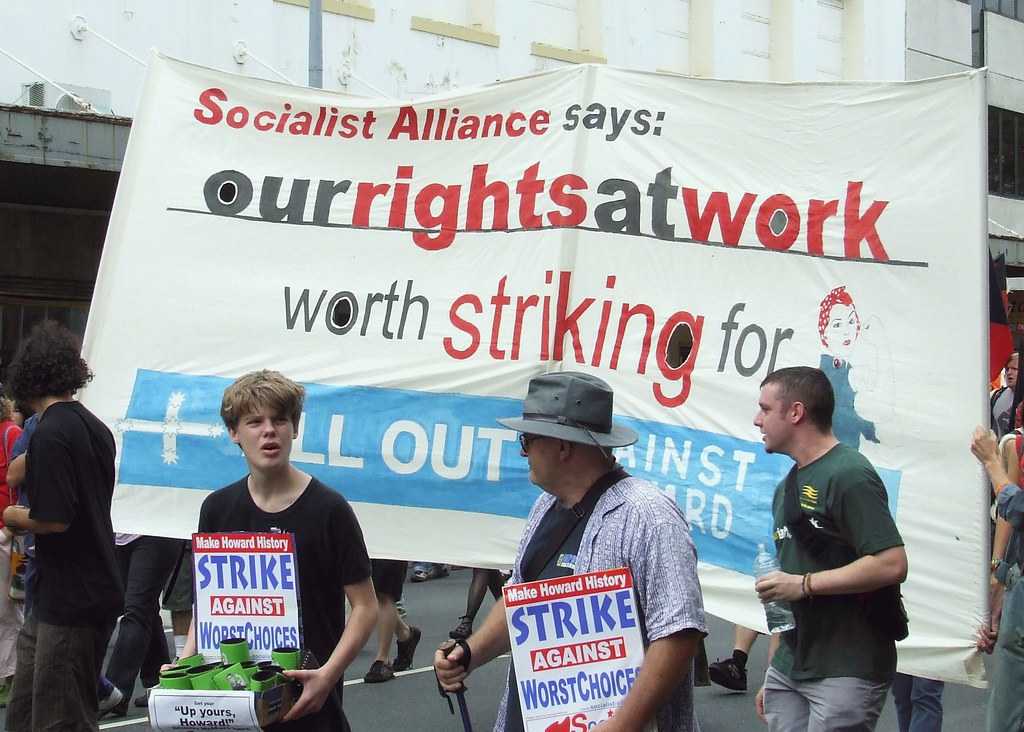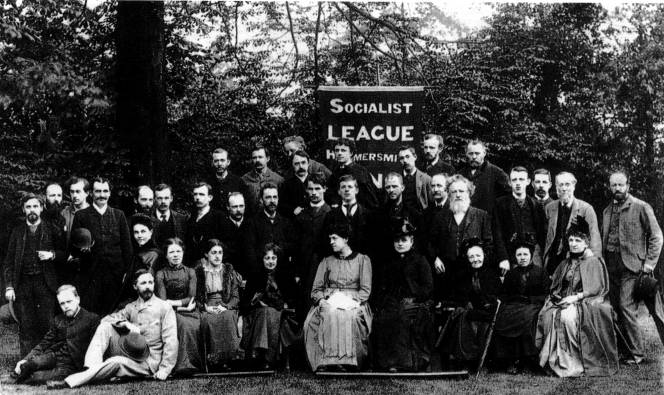socialism
Market greed or a planned economy for human need?
By Dave Holmes
[This is the text of a talk given as part of Melbourne Socialist Alliance’s Socialist Ideas Seminar series on July 28, 2010.]
False food choices under capitalism

Below is the editorial of the Socialist WebZine, online
Climate action now! Socialist Alliance releases latest Climate Change Charter

By the Socialist Alliance (Australia)
July 2010 -- For years, climate scientists have warned us that we need to act on climate change. Now, science is saying that climate change is taking place more rapidly than everyone previously thought.
The warning signs are obvious. April and May were the world’s hottest months since records began. This year’s Arctic ice sheet melt is taking place at a pace never seen before.
Scientists say carbon pollution has made the world’s oceans more acidic than they have been for at least 20 million years.
There is already too much carbon in the atmosphere. The warming already in the system risks the crossing of various natural “tipping points” that would raise temperatures further and faster.
If these points are crossed, it would bring average temperatures to levels that have not existed for millions of years, and to which today’s nature is simply not adapted.
Building a socialist-feminist economy in Venezuela

Lidice Navas in Caracas, Venezuela, June 18, 2010.
Lidice Navas interviewed by Susan Spronk and Jeffery R. Webber
June 30, 2010 -- The Bullet -- A long-time revolutionary activist, Lidice Navas is an important socialist-feminist leader within the United Socialist Party of Venezuela (PSUV) and a candidate for the Latin American parliament, among her many other responsibilities. We met her at the Women’s Development Bank in Caracas on June 18, 2010, to talk about her vision of socialism, the accomplishments of the Bolivarian process so far, and what remains to be done.
What is your political history?
I am a candidate for the PSUV in Caracas. I am also a member of the Political Bureau of the Region of Caracas and a candidate for the Latin American parliament. I also have some responsibilities in the Women's Development Bank (Banco de Desarrollo de la Mujer, BanMujer) and am also active as a coordinator in the parroquia [parish] El Valle, where we are trying to construct socialism from the level of the community.
The socialist revolution and the mass revolutionary party

Lenin: "In its struggle for power the proletariat has no other weapon but organisation".

By Dave Holmes
Despite the apparently secular nature of so much of modern life, religion is a long way from being a spent force. For revolutionary socialists aiming to mobilise the masses for a fundamental transformation of society, religion is a question which cannot be ignored.
1. While each country has its specific situation, in the West it is undeniable that the traditional religions are considerably diminished compared to even a few decades ago, with church attendances down and religious identification increasingly nominal for wide layers of the population. Moreover, the churches are being shaken by multiple and ongoing controversies and crises — over the role of women and gays, especially as priests; over revelations of past and present sexual abuse of women and children in their institutions; over financial scandals; in the case of the Roman Catholic Church, over damaging exposures of leading clergy flouting their own code of celibacy; over clashes between their conservative and more liberal wings; and over their increased integration into the activities of the state through government funding for charitable and welfare work.
Building socialism from below: The role of the communes in Venezuela

Antenea Jimenez interviewed by Susan Spronk and Jeffery R. Webber
June 13, 2010 -- The Bullet -- We met with Antenea Jimenez, a former militant with the student movement who is now working with a national network of activists who are trying to build and strengthen the comunas [communes]. The comunas are community organisations promoted since 2006 by the government of Venezuela's President Hugo Chávez government as a way to consolidate a new form of state based upon production at the local level. She told us about the important advances in the process, as well as the significant challenges that remain in the struggle to build a new form of popular power from below.
Can you tell us about the barrio where you live and the comuna?
I live in a barrio [neighbourhood] in the north part of Caracas and work in a national network that is building comunas. Currently we operate in seven states; the majority of the comunas are situated outside Caracas.
Michael Lebowitz: `We must choose socialism over capitalist barbarism'
Michael Lebowitz was interviewed by Srećko Horvat during the Subversive Film Festival and
Debunking the `Menshevik myth': William Morris and revolutionary politics

The Hammersmith Branch of the Socialist League, William Morris is fifth from the right in the second row.
Audio: BBC In Our Time on Karl Marx
Marx
Available to listen.
Last broadcast on Thu, 14 Jul 2005, 21:30 on BBC Radio 4M
